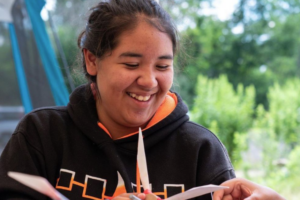“Guiding Special Education Students to Stay on Track for Success in Hybrid Classrooms”
Category: COVID-19
Jan 28
The Efficacy of Virtual Instruction in K12 Education: A Review of the Literature, Georgia State U
“given the current public health crisis, schools may have little choice in providing
some or all instruction remotely. Thus, a major concern is how to provide the best remote instruction
possible under the current circumstances. Unfortunately, existing research provides litle reliable evidence
on which online learning practices are most effective, and the few existing causal studies yield inconsistent
results. Similarly, there is a lack of consistent evidence on the relationship between teacher experience
and effectiveness in an online learning environment.”
Jan 28
Remote learning is here to stay: RAND report key US findings
“About two in ten districts have already adopted, plan to adopt, or are considering adopting virtual school as part of their district portfolio after the end of the COVID-19 pandemic. District leaders cited reasons related to student and parent demand for continuing various forms of online instruction in future years.”
Jan 25
Survey: Students Want More Opportunities to Connect With Teachers During the Pandemic: Education Week
“the survey also found that Black students, in particular, were more likely to have experienced economic hardships as a result of the pandemic: 37 percent of Black students said that at least one of the adults in their household had lost their job due to the coronavirus, compared to 27 percent of Latino students, 23 percent of white students, and 16 percent of Asian American and Pacific Islander students.”
Jan 25
Tracking attendance as pandemic stretches presents challenges for school districts
“the nonprofit Center for Reinventing Public Education found that little more than 1 in 4 districts required taking attendance at all once schools moved to remote learning during the first wave of pandemic quarantines. But there’s wide variation in how districts are asked to monitor student attendance, and experts argue existing systems intended to flag students who need support may fall short because of it.”
Jan 25
62,596 Years of Instruction Are Lost Annually, and It Has Nothing to Do With COVID
The losses are quantified in often horrifying detail by Lost Opportunities, a report recently released by The Center for Civil Rights Remedies at the Civil Rights Project at UCLA and the Learning Policy Institute. NEPC Fellow Dan Losen of the UCLA Civil Rights Project wrote the report with Paul Martinez, also of the Civil Rights Project.”
Jan 25
How an Indigenous land-based learning approach to STEM could help students across Canada: Toronto Star
““Indigenous people have these knowledges, they express them in different ways, though,” said Dokis, who is a member of Dokis Anishinabek Nation. “It’s passed on through story and observation. Whereas in western mathematics or sciences, those knowledges are expressed through numerical formulas.”
Jan 25
Relational scavenger hunt – online version from restorativeteachingtools.com
“OBJECTIVE: Participants will build relationships, get to know each other, and laugh together over Zoom!”
Jan 16
A daily class ritual of dedicating the day’s learning builds community and trust and helps teachers get to know their students
“For those of us teaching remotely, the daily dedication can still help infuse the online space with genuine humanity. You can even make a collage out of the students’ dedicatees to use as digital wallpaper for virtual class meetings or your course homepage.”
Jan 16
A Turning Point for Combating Chronic Absenteeism in American Schools by Gabby Smith
“The shift from simply keeping track of attendance to actively reaching out to struggling students and families may seem subtle, but it could have life-altering positive consequences. “











